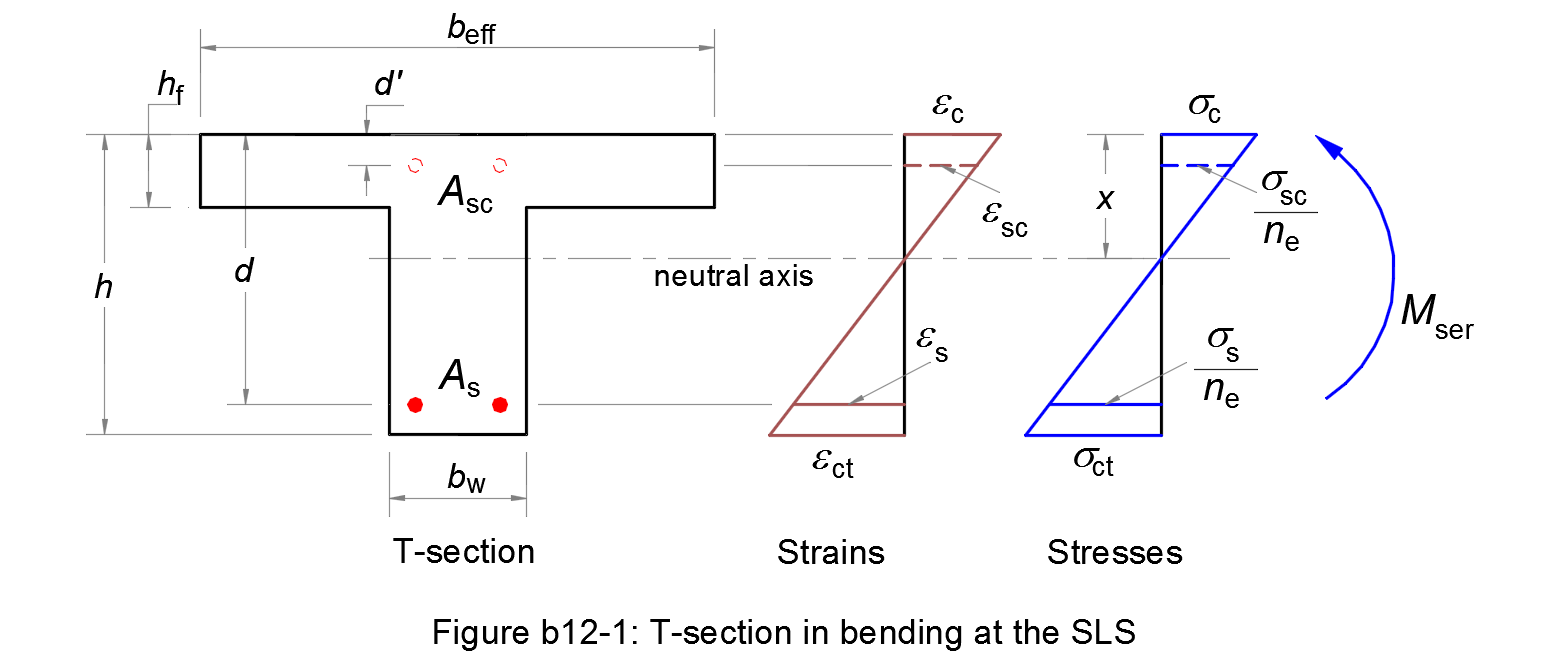Stresses of a T-section in bending at the SLS, σc and σs
Eurocode 2 - Design of concrete sections Method b12

The compressive stress in the concrete σc and tensile stress in the reinforcement σs of a T-section in bending at the SLS are calculated according to method b12.
The parameters needed for the design are the followings:
- Es
- is the design value of the modulus of elasticity of the reinforcing steel, see § 3.2.7 (4);
- Ec,eff
- is the effective modulus of elasticity of concrete;
- fct,eff
- is the mean value of the tensile strength of the concrete effective at the time when the cracks may first be expected to occur:
fct,eff = fctm or lower, (fctm(t)), if cracking is expected earlier than 28 days; - Asc
- is the cross sectional area of the compression reinforcement;
- As
- is the cross sectional area of the tensile reinforcement;
- bw
- is the web width of the T-section;
- beff
- is the flange width of the T-section;
- hf
- is the flange height of the T-section;
- h
- is the height of the T-section;
- d
- is the effective depth of the T-section;
- d'
- is the distance from the external compressive concrete to the centre of gravity of the compression steel;
- Mser
- is the design bending moment at the serviceability limit state.
Mser is generated by the characteristic combination of loads in case of stress limitation verification (see § 7.2 (2) and § 7.2 (5)).
Mser is generated by the quasi-permanent combination of loads in case of crack width calculation.
This application calculates the stresses σc, σs from your inputs. Intermediate results will also be given.
